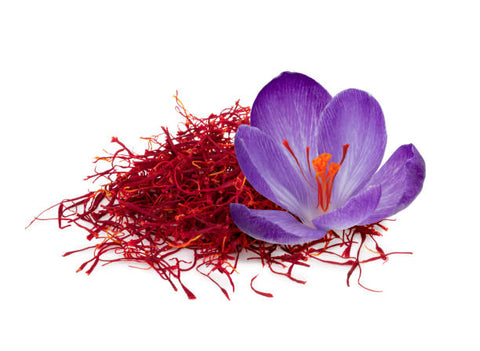What is Saffron?
Saffron is a culinary spice derived from the dried stigma of the saffron crocus, which is native to Southwest Asia. It has a bitter taste and an intense aroma, and is used to flavor and color food. Saffron is often used in Indian and Middle Eastern cuisines, as well as in European and American recipes.
Why Saffron is used during pregnancy?
Saffron is commonly used during pregnancy due to its high levels of antioxidants, which can help protect the developing baby from potential damage from free radicals. Additionally, saffron has been shown to have anti-inflammatory, antispasmodic, and mild sedative properties which may help alleviate some of the discomforts associated with pregnancy, such as morning sickness or muscle pain.

The benefits of using saffron during pregnancy include:
1. Improved digestion: Saffron can help with digestion and reduce gastrointestinal issues.
2. Improved mood: Saffron has been shown to reduce anxiety and depression during pregnancy.
3. Reduced inflammation: Saffron contains anti-inflammatory compounds which can help reduce pain and inflammation.
4. Increased energy: Saffron may help increase energy levels during pregnancy.
5. Improved sleep: Saffron may help with insomnia and ensure a good night’s sleep.
6. Improved skin: Saffron can help reduce dark spots, wrinkles, and other skin blemishes.
How long you should take saffron during pregnancy?

When should we avoid saffron?
What are the disadvantages of using saffron during pregnancy?
1. Possible Miscarriage: Saffron has been known to cause uterine contractions, so it should not be used during pregnancy, as it may lead to a miscarriage.
2. Allergic Reactions: Ingesting saffron may cause an allergic reaction in some people. This can cause skin irritation or respiratory problems, which may be problematic during pregnancy.
3. Overdose: Consuming too much saffron could cause an overdose, which can be dangerous to the health of both the mother and the unborn baby.
4. Contamination: Saffron is sometimes contaminated with lead, which is not safe for pregnant women.












